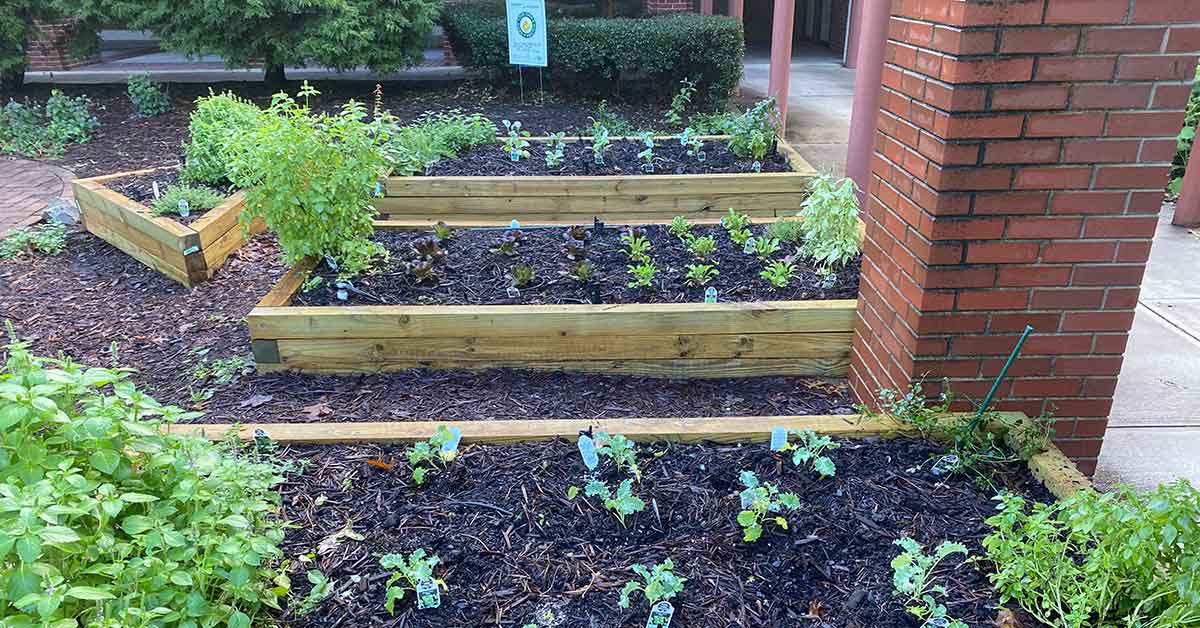
Learning + Growing Together | Edible Gardens at the University of Arkansas- Fort Smith
Edible Gardens are growing in popularity in both personal, professional, and educational spaces. Simply put, edible gardens are gardens that will provide a harvest of fruits, vegetables, herbs, or other edible plants. At the University of Arkansas- Fort Smith, Grounds Project Manager Brandon Haley led an installation of an edible garden on campus in conjunction with the student garden club.

The garden was created with multiple purposes in mind. It provides a unique educational opportunity to students, who helped install the garden and continue to maintain it by planting and harvesting vegetables and herbs throughout the year. Food produced by the garden is given to local food banks to support the community in and around Fort Smith. The edible garden is one step to help address food insecurity and provide fresh, healthy options to families in need.
The edible garden was constructed in a way that gave the vegetables and herbs planted the best opportunity to thrive. The SSC team installed raised beds around an already existing pollinator garden and utilized composting soil and a unique irrigation set up to ensure success. Throughout the year, students in the Garden Club plant and harvest a variety of vegetables and herbs, paying close attention to factors like the season and the space to determine which ones will thrive best.
Aeric Brandli, the Grounds Manager on campus, continues to assist with the garden’s maintenance while also tracking its progress. He shared a progress report on the first summer season:
“This summer, we were pleasantly surprised to find that our garden performed better than expected. Cherry tomatoes grew in abundance, and we had many praises for the way herbs smelled and the size of peppers growing. All summer plants were harvested on October 12 to make room for a wide variety of fall plants, which are currently growing and beginning to thrive in this custom environment.”
We are eager to watch the garden continue to grow and serve students and the community in years to come. To learn more about what SSC is doing on campuses around the country, browse the content in our Resource Center and follow us on Facebook, LinkedIn, and Instagram.